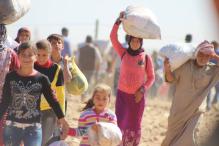Organized crime has emerged as a major factor that can exacerbate violence, complicate peace negotiations and corrupt transitions from war to peace. Illicit networks span continents, yet they often thrive in fragile and conflict-affected states by taking advantage of illicit opportunities to entrench their economic, political and social influence through corruption, rent-seeking, predation and criminal governance.
Notwithstanding the increasing threat posed by organized crime, international organizations and bilateral agencies remain ill-equipped to handle this challenge. Analytical capacities within governments and institutions such as the United Nations are weak. Operational tools are often inadequate and there is an insufficient understanding of what works and what doesn’t to reduce the growing impact of organized crime on international peace and security.
To address this gap, the UN University Centre for Policy Research undertook a 12-month policy-oriented research project seeking to improve the international response in situations where crime and conflict intersected. The objective was to draw lessons from a series of case studies and identify recommendations for international actors to limit the impact of organized crime on conflict, peace negotiations, and political transitions.
A comprehensive review of the literature led the team to focus on three lines of inquiry where the evidence base was deemed to be particularly weak; where the impact of organized crime was apparent; and where external actors could make a difference.
Download:
-
Global Illicit Flows and Local Conflict Dynamics: The case for pre-emptive analysis and experimental policy options, Mark Shaw and Tuesday Reitano
-
Libya: The Politics of Power, Protection, Identity and Illicit Trade, Tuesday Reitano and Mark Shaw
-
Conflict Obscuring Criminality: The Crime-Conflict Nexus in Nigeria, Sasha Jesperson
-
Going Straight: Criminal Spoilers, Gang Truces and Negotiated Transitions to Lawful Order, James Cockayne, John de Boer and Louise Bosetti
-
Criminal Agendas and Peace Negotiations: The Case of Colombia, John de Boer, Juan Carlos-Garzón Vergara and Louise Bosetti
-
The Hellish Road to Good Intentions: How to Break Political-Criminal Alliances in Contexts of Transition, Vanda Felbab-Brown
-
Afghanistan Affectations: How to Break Political-Criminal Alliances in Contexts of Transition, Vanda Felbab-Brown
-
Myanmar Maneuvers: How to Break Political-Criminal Alliances in Contexts of Transition, Vanda Felbab-Brown
This material has been funded by UK aid from the UK government; however the views expressed do not necessarily reflect the UK government’s official policies.


